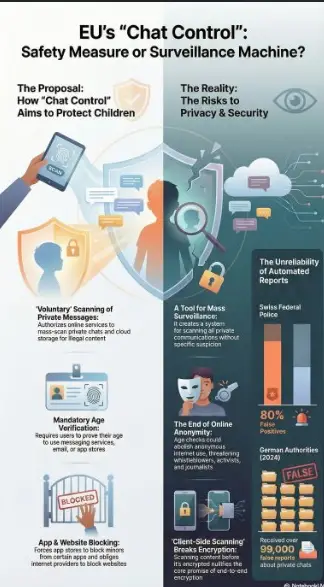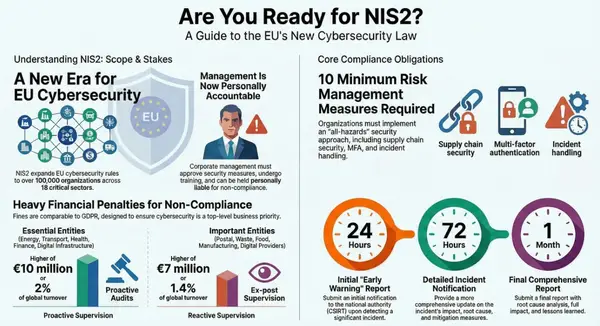Navigating the Dynamic Digital Frontier: Cybersecurity and Data Protection in Asia

The rapid digital transformation sweeping across Southeast Asia and South Korea has undeniably brought immense opportunities, driving economic progress and improving living standards. However, this technological acceleration is accompanied by a burgeoning landscape of cyber threats, making robust cybersecurity and data protection measures a critical imperative for businesses and governments alike. This article delves into the current state of cybersecurity and data protection across the region, highlighting key frameworks, national initiatives, and persistent challenges.
ASEAN's Unified Vision for a Secure Cyberspace
The Association of Southeast Asian Nations (ASEAN) recognizes cybersecurity as a key enabler of its digital economy and has embarked on a coordinated approach to protect its critical information infrastructure (CII). The ASEAN Cybersecurity Cooperation Strategy (2021–2025) serves as a comprehensive roadmap, identifying five key dimensions of work:
- Advancing Cyber Readiness Cooperation.
- Strengthening Regional Cyber Policy Coordination.
- Enhancing Trust in Cyberspace.
- Regional Capacity Building.
- International Cooperation.
A crucial component is the ASEAN Critical Information Infrastructure Protection Framework, designed to align cybersecurity decisions with mission objectives, organize requirements from various sources, and facilitate communication with stakeholders. The framework encourages ASEAN Member States (AMS) to implement industry-recognized mechanisms like the NIST Framework and develop national and regional backup and recovery strategies. Priority is given to the protection of CIIs with high cross-border cybersecurity risk impacts, including the energy and utilities, transportation, and ICT sectors.
Key initiatives supporting this strategy include:
- Establishment of an ASEAN Regional Computer Emergency Response Team (CERT) to facilitate timely information exchange on threats and attacks among National CERTs, fostering capacity building and coordination. A feasibility study for the ASEAN CERT was conducted by MITRE in 2019.
- ASEAN-Singapore Cybersecurity Centre of Excellence (ASCCE), which plays a role in regional capacity-building initiatives.
- Development of a long-term Implementation Roadmap for Norms of Responsible State Behaviour in Cyberspace. ASEAN was the first regional organization to subscribe in-principle to the 11 voluntary, non-binding norms from the 2015 UNGGE report.
These efforts are vital as ASEAN prepares to deploy its Digital Masterplan 2025, with cybersecurity underpinning digital ambitions like Smart Cities and Industry 4.0.
National Landscapes: Diverse Approaches and Evolving Regulations
While ASEAN promotes regional cooperation, individual nations are also bolstering their defenses:
- Brunei Darussalam: Enacted its Personal Data Protection Order (PDPO) on January 8, 2025, which will be implemented in phases, granting organizations a one-year grace period for full compliance. The PDPO aims to protect individual personal data processed by private sector organizations and facilitate cross-border data flows. The Cybersecurity Act regulates CII owners, covering essential services like energy, info-communications, healthcare, and banking. Organizations must notify the Authority for Info-communications Technology Industry (AITI) of data breaches resulting in significant harm or scale within 3 days of assessment. CII owners must also notify the Commissioner of specific cybersecurity incidents, though timelines are yet to be prescribed.
- Cambodia: Has seen rapid digitalization but faces challenges, including a shortage of skilled cybersecurity professionals and a developing legal framework. The Royal Government of Cambodia has introduced legal measures to address cybercrime, including the establishment of the National Authority for Combating Cybercrime (NACC) in 2014. However, the draft Cybersecurity Law has raised concerns due to vague and overbroad terms, extensive powers for the Digital Security Committee (DSC) and Cybersecurity Inspectors, and disproportionately harsh criminal sanctions, which critics argue could undermine privacy and freedom of expression. Currently, there are no specific laws or regulations addressing data breach notifications or procedures.
- Indonesia: The Law No. 27 of 2022 on Protection of Personal Data (PDP Law) was enacted in October 2022, with its implementing regulation still forthcoming as of late 2024. In the event of a personal data breach, data controllers must provide written notification to the relevant data subject and the PDP Agency (currently MOCDA) within 72 hours. Cross-border data transfers require ensuring the recipient country has a comparable or higher level of data protection, adequate binding protection, or data subject consent. The BSSN Regulation No. 1 of 2024 on Cyber Incident Management requires Electronic System Operators (ESO) to establish Cyber Incident Response Teams (CIRTs) to manage incident recovery and reporting, with strategic sectors required to report incidents within 24 hours.
- Malaysia: Governed by the Personal Data Protection Act 2010 (PDPA), which mandates data controllers to obtain consent for processing personal data and adhere to sector-specific codes of practice. The Cybersecurity Act (CSA) addresses the management of cybersecurity threats to National Critical Information Infrastructures (NCIIs) and the regulation of cybersecurity service providers through licensing. NCII entities must notify the Chief Executive and their NCII sector lead of cybersecurity incidents. Data controllers must notify the Commissioner of personal data breaches within 72 hours.
- Myanmar: Has a Cybersecurity Law and Electronic Transactions Law. The Electronic Transactions Law outlines responsibilities for the Personal Data Management Officer (PDMO) regarding systematic storage, protection, and processing of personal data. However, there are no explicit requirements for notifying regulatory authorities or affected data subjects in the event of a data breach.
- Philippines: Data protection is primarily under the Data Privacy Act of 2012 (DPA), with cybersecurity governed by the Cybercrime Prevention Act of 2012 (CPA). The proposed Critical Information Infrastructure Protection Act is pending, aiming to secure CIIs like water, electricity, banking, and telecommunications. The National Privacy Commission (NPC) is the primary regulatory authority. Personal data breaches meeting certain conditions (e.g., likely significant harm, affecting at least 1000 individuals) require notification to the NPC and affected data subjects within 72 hours. Service providers also have duties regarding computer data preservation and collection assistance for law enforcement.
- Singapore: The Cybersecurity Act was amended in May 2024 to expand the Cyber Security Agency of Singapore's (CSA) oversight, enhancing the resilience of Singapore's CII. The Singapore Cybersecurity Strategy 2021 focuses on developing a vibrant cybersecurity ecosystem, fostering international cooperation, and growing cyber talent. Organizations must notify the Commissioner of CII cybersecurity incidents within 2 hours for initial reports and provide supplementary details within 14 days. Data breaches resulting in significant harm or affecting at least 500 individuals must be assessed within 30 days and notified to the Commissioner.
- Thailand: The Personal Data Protection Act (PDPA) B.E. 2562 (2019) and the Cybersecurity Act B.E. 2562 (2019) are the main governing laws. CII Organizations must protect against cyber risks by complying with National Cyber Security Committee (NCSC) guidelines, conducting cyber risk assessments annually, and audits every three years. A significant data localization requirement mandates storing "High Impact Level" data within Thailand, with backup centers either in Thailand or a geographically close Southeast Asian country if using cloud services. Data breach incidents must be notified to the Office of the PDPC within 72 hours.
- Vietnam: The Personal Data Protection Decree (PDPD) has extraterritorial effect, applying to entities involved in personal data processing in Vietnam. It imposes prescriptive consent requirements for processing and mandates a Personal Data Processing Impact Assessment Dossier (DPIA) to be submitted to A05/MPS within 60 days of processing. Multiple laws (PDPD, Law on Cybersecurity, Law on Network Information Security - LNIS) impose data breach notification obligations; for example, the PDPD requires notification to A05/MPS within 72 hours for any personal data protection violation, but notably, it does not require notification to affected data subjects. The Law on Cybersecurity also includes mandatory data localization requirements for specific types of data, such as personal information of service users in Vietnam.
- South Korea: Takes a proactive stance on cyber defense, with the 2024 revision of the Regulation on Cybersecurity Duty allowing the National Intelligence Service (NIS) to proactively identify, deter, and block activities against national security. The Personal Information Protection Commission (PIPC) and Korea Communications Commission (KCC) have been active, imposing significant administrative penalties for data privacy violations, including a record KRW15.1 billion fine for a personal information leak in 2024. The AI Framework Act, passed in December 2024, establishes obligations for providers of high-impact, production-type, and high-performance AI services to ensure safety and transparency, including extraterritorial regulation and labeling for generative AI.
- Hong Kong: Adopted a Critical Infrastructures Cybersecurity Law in late 2025, expected to take effect in early 2026. This law mandates Critical Infrastructure Operators (CIOs) to formulate security management plans, conduct annual risk assessments and biennial audits, and ensure third-party compliance. CIOs must also have emergency response plans and notify the Commissioner’s Office of serious incidents within 2 hours and other incidents within 24 hours. Penalties for non-compliance can range from HK$500,000 to HK$5 million.
Cross-Cutting Challenges and Compliance Considerations
Several key themes emerge across the region:
- Critical Information Infrastructure (CII) Protection: A common thread in national and regional strategies, with specific sectors often identified for heightened protection (e.g., energy, transportation, ICT, banking).
- Cross-Border Data Flows and Data Sovereignty: A central tension in China-ASEAN digital cooperation, where geopolitical competition and fragmented regulations create complex security challenges. China's Digital Silk Road initiative and its associated cyber governance system often promote localization policies. ASEAN aims to balance sovereignty and circulation through data categorization and mutual recognition.
- Evolving Threat Landscape: The region faces increasingly sophisticated transboundary cyberattacks, ransomware, and phishing campaigns. The rapid proliferation of new technologies like 5G and IoT also introduces new security considerations.
- Capacity Building and Talent Pipeline: There is a continuous need for training and skill development to address the cybersecurity skills gap and improve cyber resilience across AMS.
- Public-Private Partnerships (PPPs): Governments increasingly recognize the need to collaborate with leading technology companies and industries to build cyber capacities and technical solutions.
- Supply Chain Cybersecurity: Protecting digital assets and securing supply chains is a critical imperative, as attackers increasingly target weaknesses in the supply chain to bypass direct defenses.
- The Human Factor: Human error remains a significant cause of cybersecurity incidents, underscoring the need for robust awareness and training programs. The issue of "rogue AI usage" where employees use AI contrary to company policy also highlights internal risks.
- AI Regulation: As AI technologies advance, countries like South Korea are already enacting comprehensive AI frameworks to address safety, transparency, and labeling requirements for generative AI.
For organizations operating in this diverse region, compliance requires constant vigilance. It involves regular cybersecurity risk assessments and audits, implementing robust security measures and incident response plans, and understanding the specific data protection and data breach notification requirements of each jurisdiction. The appointment of Data Protection Officers (DPOs) or similar roles is also becoming increasingly common.
Conclusion
The digital future of Southeast Asia and South Korea is inextricably linked to the integrity of their digital infrastructure and the security of their data. While significant strides have been made through collaborative regional strategies and evolving national legislations, the dynamic nature of cyber threats demands continuous adaptation, enhanced international cooperation, and a proactive, multi-stakeholder approach to building a truly safe, secure, and resilient cyberspace. Businesses must embed a strong risk management mindset into their operations, going beyond mere compliance to thrive confidently in this complex digital world.





